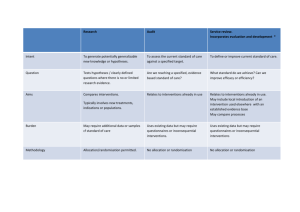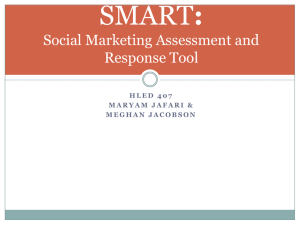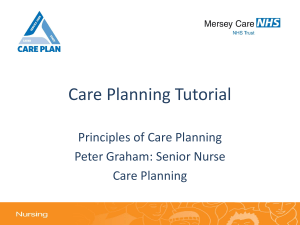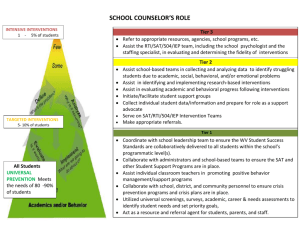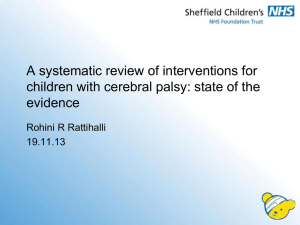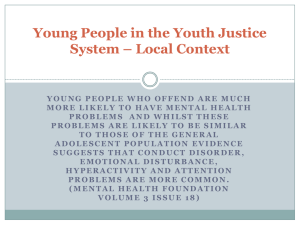MICCI meeting intro_revised_clean
advertisement
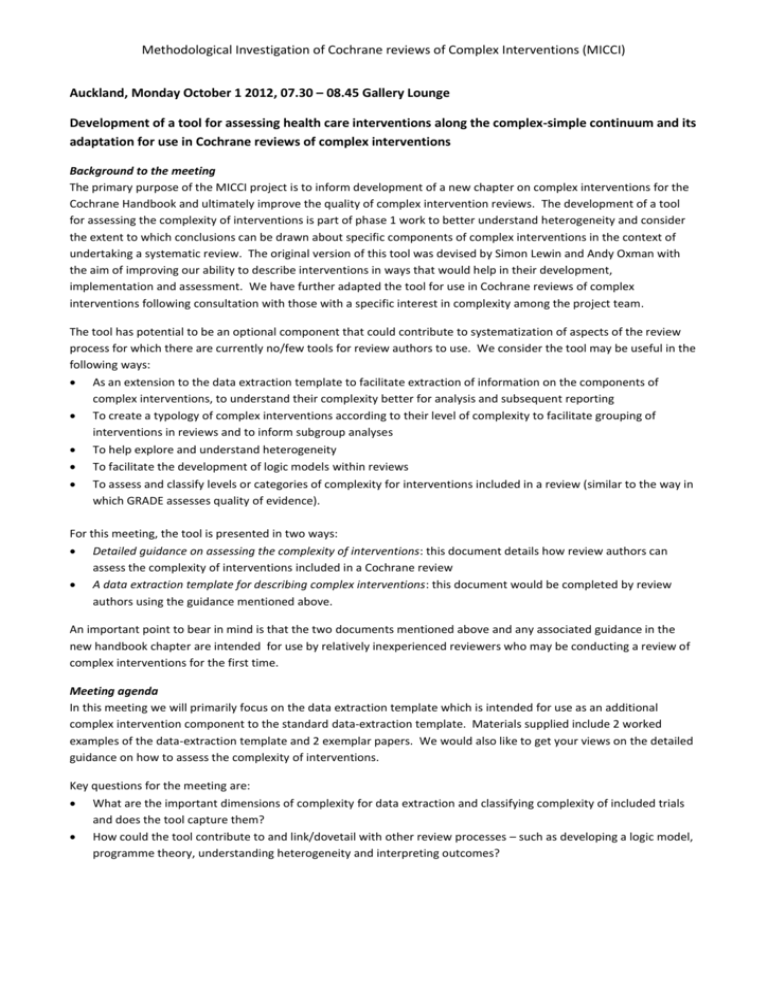
Methodological Investigation of Cochrane reviews of Complex Interventions (MICCI) Auckland, Monday October 1 2012, 07.30 – 08.45 Gallery Lounge Development of a tool for assessing health care interventions along the complex-simple continuum and its adaptation for use in Cochrane reviews of complex interventions Background to the meeting The primary purpose of the MICCI project is to inform development of a new chapter on complex interventions for the Cochrane Handbook and ultimately improve the quality of complex intervention reviews. The development of a tool for assessing the complexity of interventions is part of phase 1 work to better understand heterogeneity and consider the extent to which conclusions can be drawn about specific components of complex interventions in the context of undertaking a systematic review. The original version of this tool was devised by Simon Lewin and Andy Oxman with the aim of improving our ability to describe interventions in ways that would help in their development, implementation and assessment. We have further adapted the tool for use in Cochrane reviews of complex interventions following consultation with those with a specific interest in complexity among the project team. The tool has potential to be an optional component that could contribute to systematization of aspects of the review process for which there are currently no/few tools for review authors to use. We consider the tool may be useful in the following ways: As an extension to the data extraction template to facilitate extraction of information on the components of complex interventions, to understand their complexity better for analysis and subsequent reporting To create a typology of complex interventions according to their level of complexity to facilitate grouping of interventions in reviews and to inform subgroup analyses To help explore and understand heterogeneity To facilitate the development of logic models within reviews To assess and classify levels or categories of complexity for interventions included in a review (similar to the way in which GRADE assesses quality of evidence). For this meeting, the tool is presented in two ways: Detailed guidance on assessing the complexity of interventions: this document details how review authors can assess the complexity of interventions included in a Cochrane review A data extraction template for describing complex interventions: this document would be completed by review authors using the guidance mentioned above. An important point to bear in mind is that the two documents mentioned above and any associated guidance in the new handbook chapter are intended for use by relatively inexperienced reviewers who may be conducting a review of complex interventions for the first time. Meeting agenda In this meeting we will primarily focus on the data extraction template which is intended for use as an additional complex intervention component to the standard data-extraction template. Materials supplied include 2 worked examples of the data-extraction template and 2 exemplar papers. We would also like to get your views on the detailed guidance on how to assess the complexity of interventions. Key questions for the meeting are: What are the important dimensions of complexity for data extraction and classifying complexity of included trials and does the tool capture them? How could the tool contribute to and link/dovetail with other review processes – such as developing a logic model, programme theory, understanding heterogeneity and interpreting outcomes?

